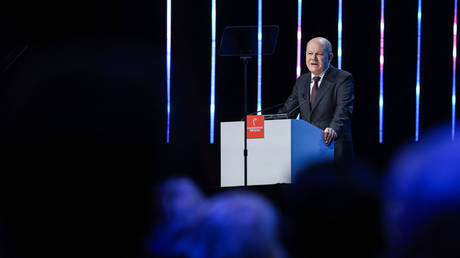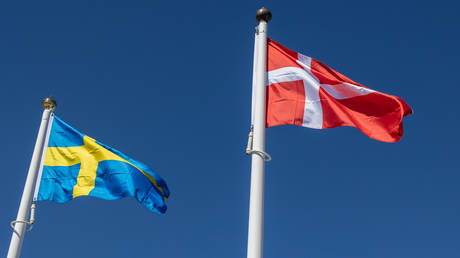
Despite ambitious plans to phase out Russian gas, the EU increased purchases in 2023, Reuters reported earlier this month
The predominance of fossil fuels in global energy output is nearing its end, German Chancellor Olaf Scholz has claimed, adding that his country aims to produce 80% of its electricity from renewable sources by 2030.
German industry had for decades relied on relatively inexpensive Russian gas, and to a lesser extent oil. However, following the start of the Ukraine conflict in February 2022, energy imports from Moscow fell dramatically, adversely affecting the competitiveness of many German businesses.
In 2020, the European Union unveiled its Green Deal strategy for the bloc to become climate-neutral by the middle of the century.
Speaking at the opening ceremony of the Hanover trade fair on Sunday, Scholz said that the “era of fossil fuels is coming to an end.” German industry will have to reorganize its operations, but not all technological processes allow for swift decarbonization, according to the chancellor.
The German leader stated that “modern, highly-flexible and climate-friendly power plants” were currently being built across the country to replace traditional power sources. Scholz also said that Norway would provide Germany’s industry with “clean energy from wind and hydropower.”
Eighty percent of the nation’s electricity is expected to come from renewables by 2030, including solar power and both onshore and offshore wind, he added.
Scholz said the two years since the start of the Ukraine conflict have been “turnaround years” for Europe, allowing it to “address the necessary changes” to its energy supply.
The EU aims to completely wean itself off Russian fossil fuels by 2027. Last Friday, however, the bloc’s Agency for the Cooperation of Energy Regulators released a report warning against drastic reductions of imports of liquefied natural gas (LNG) from Russia.
In 2023, Russia emerged as the EU’s second-biggest LNG supplier after the US, accounting for 16% of the bloc’s imports.
Earlier this month, Reuters cited calculations based on the EU’s trade statistics as showing that Brussels increased natural gas purchases from Russia in 2023.




